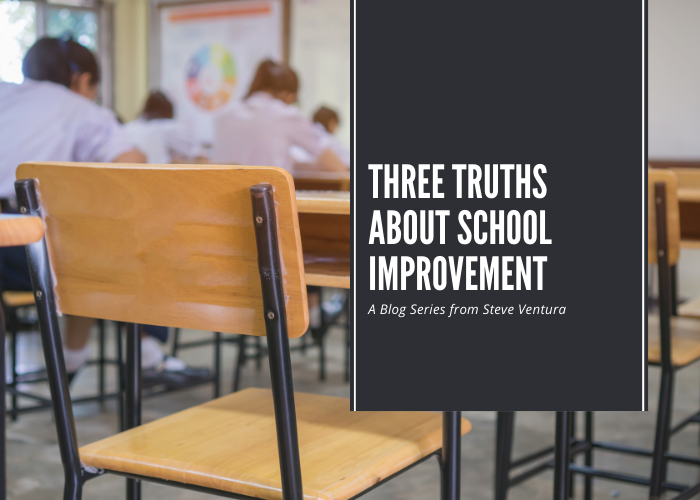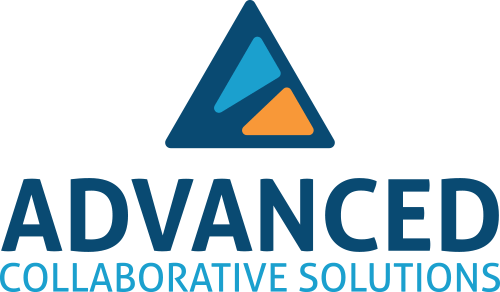Truth One: A Program Will Never Have as Much Impact as Your Practice

By: Steve Ventura
Truth One: A Program Will Never Have as Much Impact as Your Practice.
Part 1 of 3. This three-part series debunks myths and provides the truth about what works best for school improvement. View Part 2 and Part 3 of this series.
Anytime schools feel pressure to dramatically improve student outcomes, which is nearly every day, a common solution is to purchase additional resources or adopt more programs. While this strategy may have some positive effects, the results never seem to match the investment. And if this was a viable solution, then why do so many schools continue to add on additional programs each year, even when there is a multitude of initiatives currently in place? If this scenario sounds familiar, you are not alone. When evidence of effectiveness regarding student achievement is lacking, then program adoption may not be the best solution.
We have to get away from scripted curriculum and start creating culturally-relevant pedagogy to inspire our youth. The trend to incorporate programs that eliminate teacher input and judgment mean teachers can no longer decide what to teach, or when and how to teach it. Program-based initiatives are being incorporated at an alarming rate. Many schools expect all teachers, in any given subject, to end on the same word each day. The hope is that this helps accountability scores, and provides equity for all students who receive the same skills. I'm not against a structure or curricular resources, and I believe that teachers and students can benefit from not having to build programs from the ground up every year. When programs do not provide flexibility and decision making by teachers to meet individual student needs, it becomes a "one size fits all" delivery model. Not only do students suffer from scripted programs, but teachers suffer, too. Teachers lose their creativity, their enthusiasm and their love of teaching. They sometimes lose their desire to be teachers.
By contrast, it is possible for teachers to increase their effectiveness by considering the power of contemporary, research-based instructional strategies. Unlike programs, effective instruction is much more likely to improve the efficacy of teachers, as well as their students. For example, cooperative learning approaches are those involving students working in groups to complete learning tasks, and they may sometimes also be assessed as a group. Individualistic learning is students working independently to complete learning tasks, and they are assessed separately. Cooperative learning is not a new strategy, however, recent research shows that cooperative learning is most powerful when students have acquired sufficient background knowledge to be involved in discussion and learning with peers. It is most useful when learning concepts, verbal problem solving, spatial problem solving, retention and memory. Results also show that the effects of cooperative learning increase with age, meaning, as you get older you are more likely to benefit from collaborative learning opportunities.
Teachers who are explicit about the learning intentions for each lesson, who are well organized, who explain clearly and include guided practice for students, have a positive effect on learning. The capacity of the teacher to speak clearly and articulate learning intentions in language that the students understand is also critical. This links very well to Shirley Clarke’s work around having clear learning intentions and success criteria for each lesson, particularly where students help to develop the success criteria and therefore are able to understand what they mean.
Finally, a far more effective use of resources is instructional coaching. Recent meta-analysis of research on literacy instructional coaching of elementary school teachers by Kraft, Blazar and Hogan indicates that the practice of instructional coaches has statistically promising outcomes for the improvement of practice, and academic gains for students. Without question, coaching can be challenging, but potential gains as measured by the literature suggests that it is a worthy investment of time and effort.
Why move beyond program implementation? Simple, let’s focus on improving the practice of teachers. "Expert teachers move learning into greater depth—they focus on deep rather than surface learning, and generally provide greater challenge for their students." (Hattie 2011)
References
Clarke, Shirley. 2005. Formative Assessment in Action: Weaving the Elements Together. London: Hodder Murray.
Hattie, John. 2011. Visible Learning for Teachers: Maximising Impact on Learning. London: Routledge.
Kraft MA, Blazar D, Hogan D. The Effect of Teacher Coaching on Instruction and Achievement: A Meta-Analysis of the Causal Evidence. Review of Educational Research [Internet]. 2018;88 (4): 547-588.

